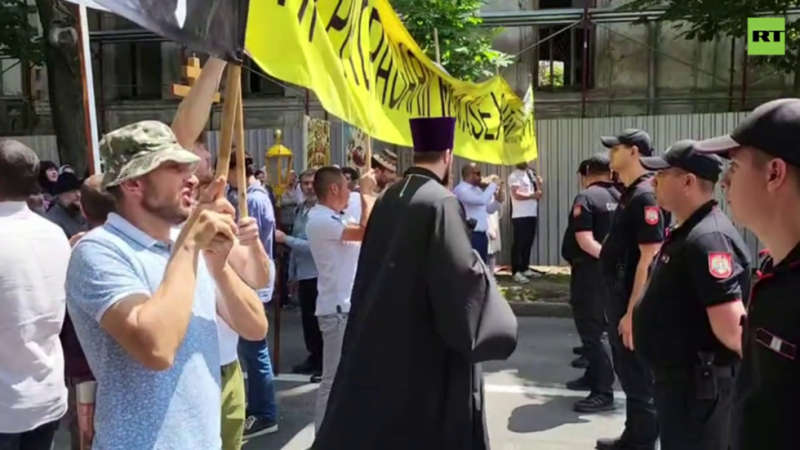
Tensions ran high in Chisinau, Moldova’s capital, this past Sunday as competing demonstrations – a religious procession and a Pride march – unfolded against a backdrop of significant police presence. The day highlighted a deep societal divide over LGBTQ+ rights in the country.
An Orthodox Christian procession, a regular occurrence, found itself unexpectedly halted by law enforcement. The intervention, reportedly due to the procession’s unauthorized nature or potential for disruption, contrasted sharply with the treatment of the concurrent Pride march. The march, also technically unauthorized, was allowed to proceed relatively undisturbed, a fact that has sparked considerable debate and commentary. Videos circulating online show a heavy police presence managing the flow of both events, with officers visibly separating the two groups and maintaining order amidst the charged atmosphere.
This apparent discrepancy in how the authorities handled the two demonstrations has ignited criticism from various corners. Some argue that the police intervention against the religious procession was heavy-handed and infringed upon religious freedom, while others point to the lack of intervention against the Pride march as evidence of bias or a tacit endorsement of LGBTQ+ rights. The contrasting responses have fueled ongoing conversations about freedom of assembly, religious freedom, and the delicate balance of maintaining public order amidst differing social viewpoints.
The events of Sunday underscore the complex social and political landscape of Moldova, where traditional values often clash with the growing push for LGBTQ+ rights and inclusion. The differing treatment of the two demonstrations serves as a potent symbol of these tensions, prompting questions about the role of the state in navigating sensitive social issues and ensuring the rights of all citizens are respected, regardless of their beliefs or sexual orientation. The coming days and weeks are likely to see continued discussion and analysis of the events, their implications, and the broader context within Moldovan society. The situation is certainly one to watch closely as it unfolds.










